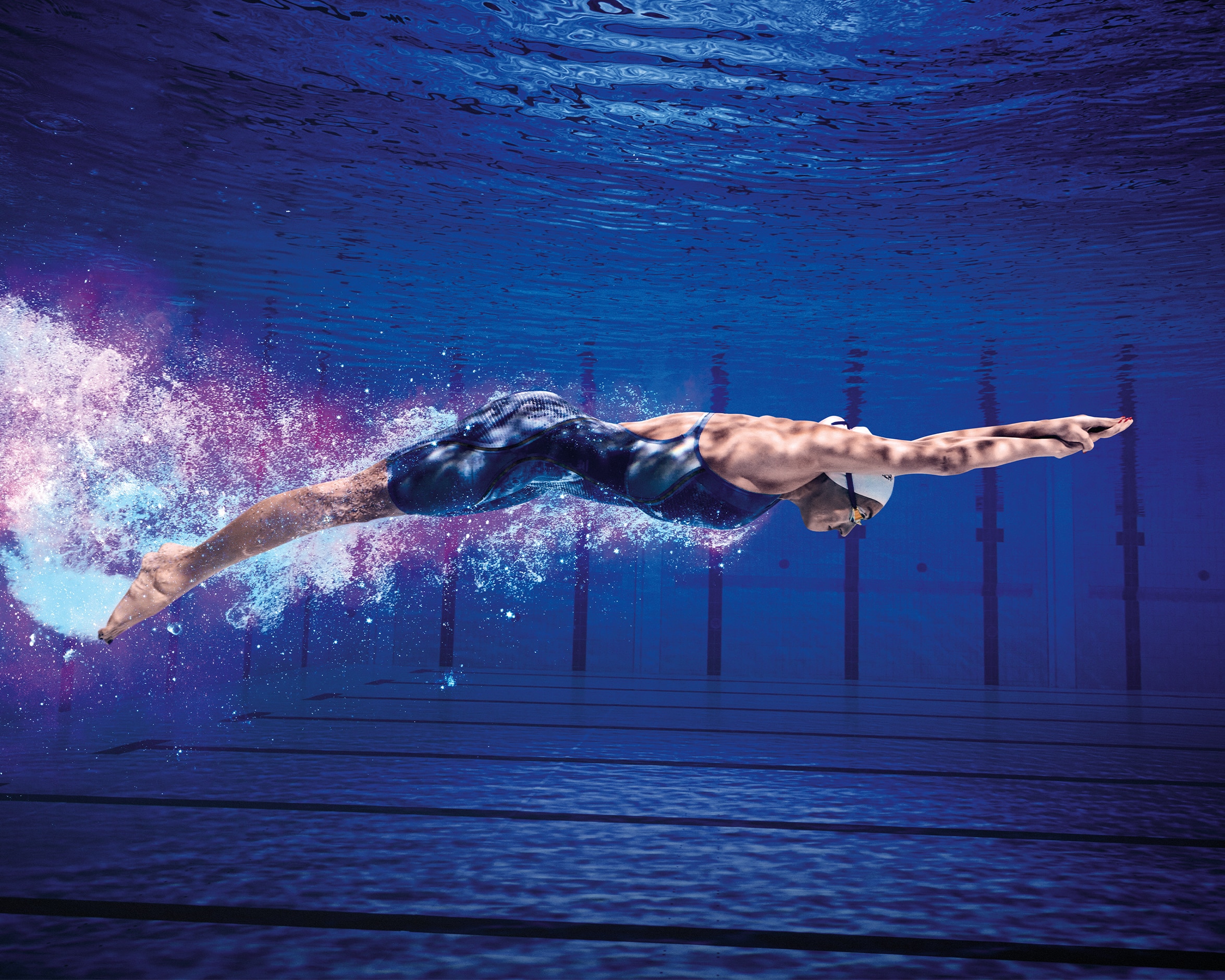Tatjana Smith laughs often. Whether joking or serious, facing down challenges or on top of the world, she’s got her eye on the silver lining and doing her very best. The two-time Olympian tells Christi Nortier why showing up and giving it her all are the only wins she’s concerned with.
At first, Tatjana Smith had mixed feelings about the Paris Olympics – but chatting to BL with just 28 days to go, she’s bursting with excitement. She won her first swimming medal at eight years old and now 27, she’s vying for her second set of Olympic medals. She admits, with a knowing laugh, that no one has higher expectations of her than she does, but that her goal is to do her very best on the day, aim for her personal best times and, most importantly, enjoy the experience. By the time she dives in, she knows all the hard work is behind her. What’s left is to have fun. And after that? “After Paris, I think I’m just going to see how it goes,” she smiles.
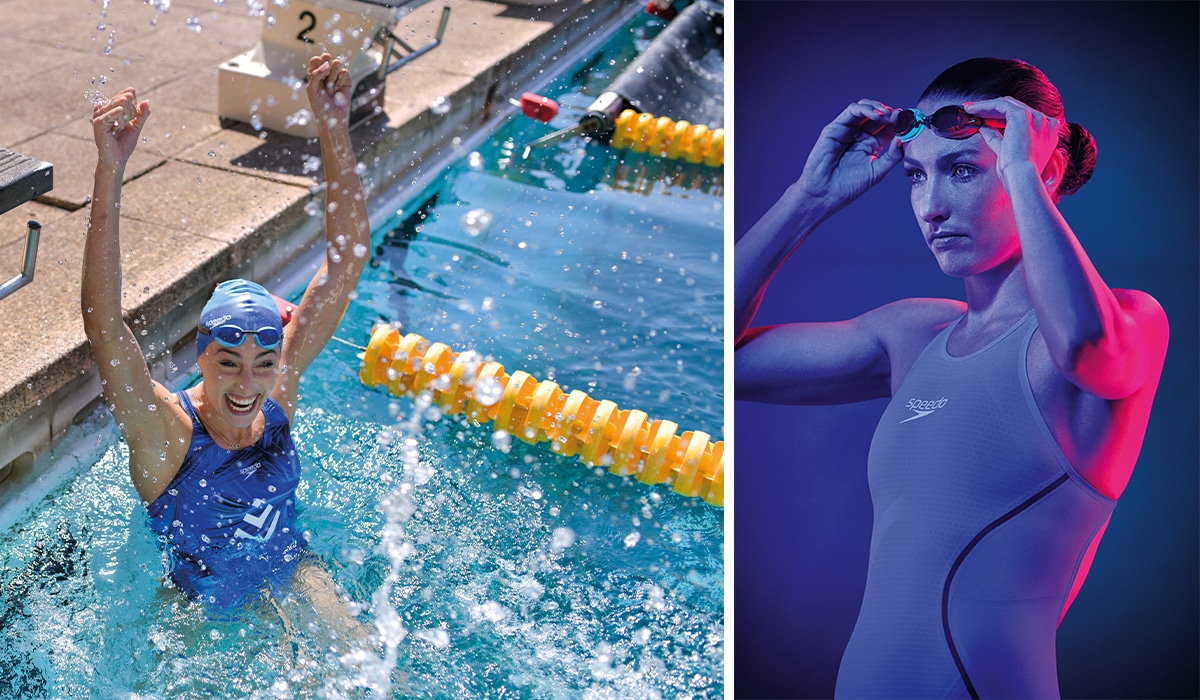
A different dream
If she’d had it her way, schoolgirl Tatjana would have been spending her days on the netball court – not in the swimming pool. “I did many sports in primary school. I enjoyed hockey, netball, and athletics so at that age, I think the push towards swimming came from my parents’ side. They saw I had talent,” Tatjana said in a 2023 interview. “It was certainly not a passion for me, definitely not. I loved netball and my mind was so set on the fact that I wanted to play that sport, and I didn’t like swimming.”
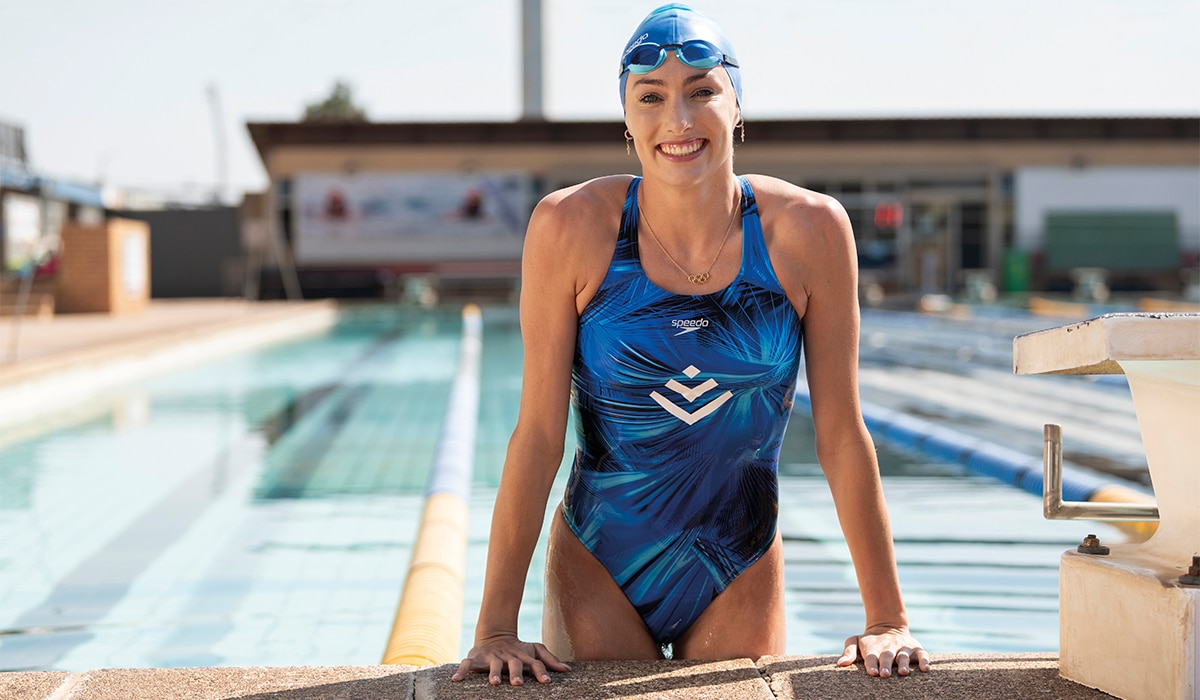
When she was in Grade 8, her swim at the Pretoria Gala impressed coach Rocco Meiring so much that he approached her parents to rave about how talented Tatjana is. She soon moved to Tuks Sport High School, where Rocco was a coach, and focused on swimming. She soon saw a major improvement. “Since then, it’s been my career,” she shared in a 2020 interview. “I went from swimming three times a week to having 11 sessions a week”.
Throughout high school, the young swimmers were out in the pool before sunrise in single digit temperatures. They were allowed to start class later in the morning to account for these sessions. She felt lucky to be at such an accommodating school where she had the opportunity to balance the pressures of schoolwork and swimming. Nevertheless, it wasn’t easy. “It is hard; the number of hours makes it very difficult. A lot of young swimmers show amazing potential early on, but then fade because the work you need to put in is gruelling,” Tatjana says. “am very passionate now about encouraging those young swimmers and telling them they have to push through, because it gets so tough.”
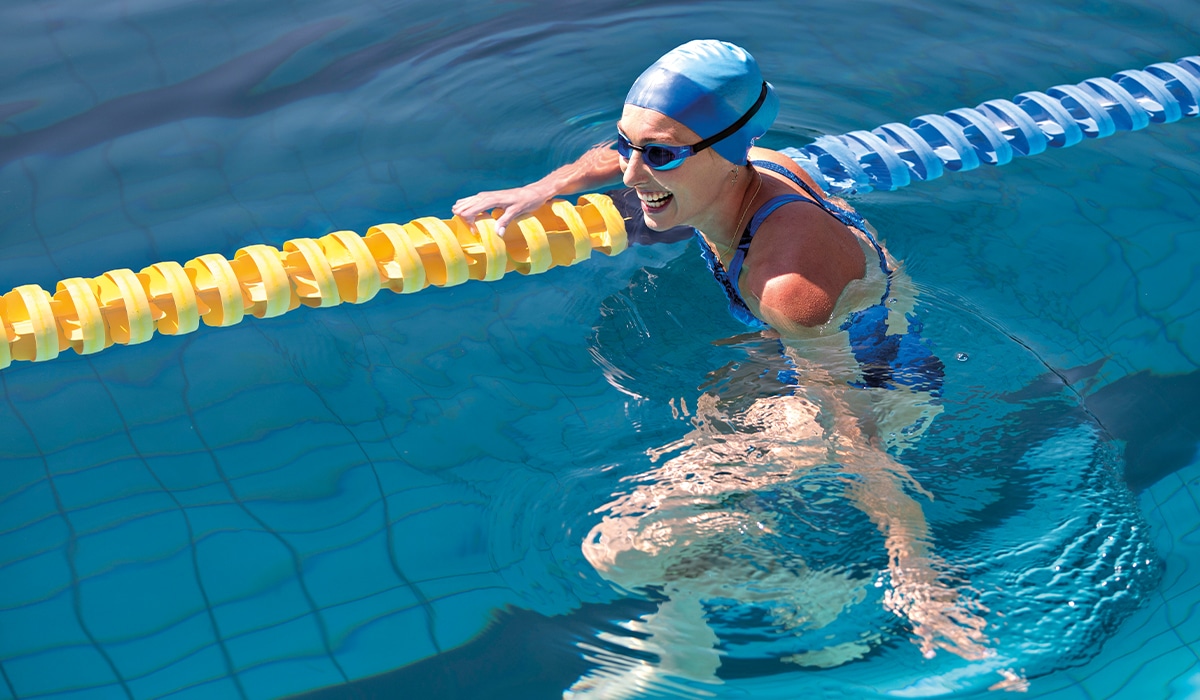
Record-breaking racer
After high school, there have been few national, continental and international breaststroke records that couldn’t withstand Tatjana’s speed. Tatjana excelled in the 50m, 100m and 200m laps around the world, collecting medals as she went. She was disappointed to miss qualifying for the Rio Olympics team by one-hundredth of a second (yep, 0.01 seconds), but it certainly didn’t slow her down. Meanwhile, Tatjana was also studying a Bachelor of Commerce in Financial Sciences at the University of Pretoria. In 2019, she graduated from university and also won double gold at the World Student Games and silver at the World Championships. She was also awarded three different sportswoman of the year awards. As the cherry on top, Tatjana was chosen to be part of the South African Olympic squad heading to Tokyo in 2020. A girlhood dream had come true. “The worst part about lockdown was waiting for the decision about whether the Olympics would be postponed,” Tatjana reflects, remembering the moment the Covid-19 pandemic was declared in 2020. “For the athletes, knowing that we were about to go into lockdown and would be unable to train normally, was scary.” But as always, she took it in her stride. “[I knew] I could be calm during lockdown and know that when it’s over, I can start training again and have enough time to get ready for the Olympics.”
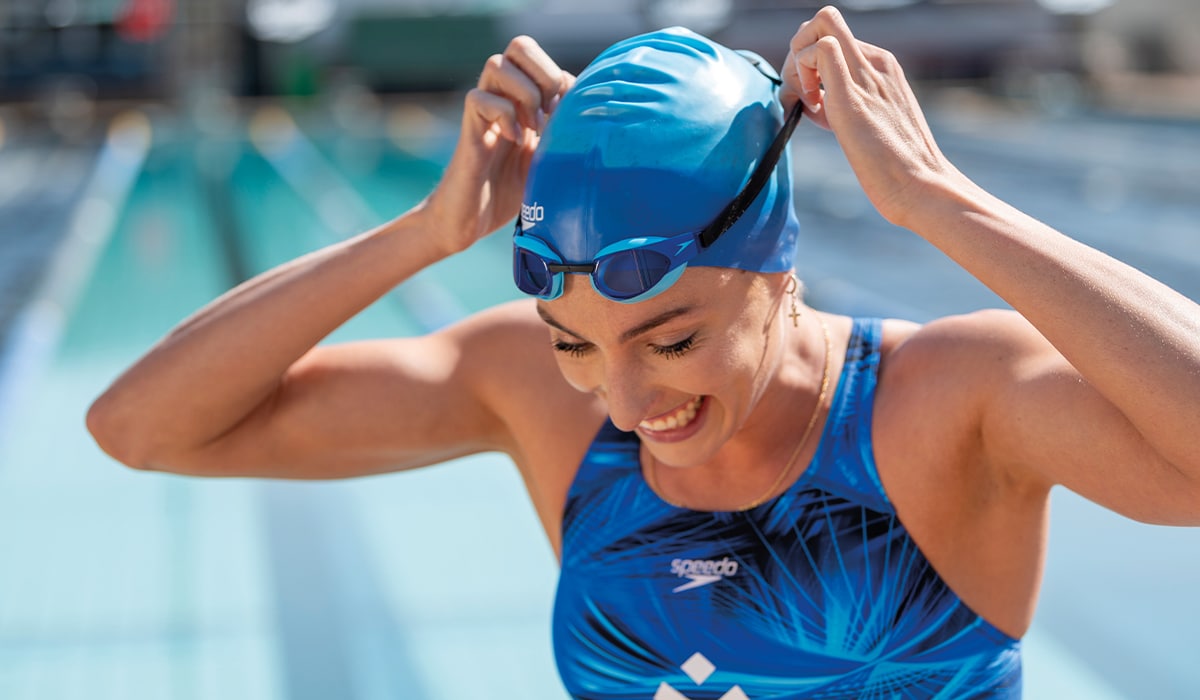
And she did just that. She took three weeks off – rare in swimming – and relished the chance to rest. She was grateful for the company of her Tuks friends and her family, who all continued to train even though they were doing different programmes. “There were a few days where I felt like skipping, but I remind myself that I always feel better afterwards – it’s a happy pill with no side effects!” This perseverance certainly paid off. She went on to take home silver in the Women’s 100m Breaststroke and gold in the Women’s 200m Breaststroke, which broke the African and world record. “You build up to this Olympic dream, and then it’s suddenly over,” Tatjana told Newzroom Afrika with a chuckle, just after her win. “It was an amazing experience. In that moment when you’re waiting to race, you’re so excited that you just want to start. And then you can’t believe it’s over!”
What it means to win
“This might be an unexpected answer, but my career highlight since the Tokyo Olympics is more of a personal one,” Tatjana says. “I proved to myself how strong and tough I can be.”
Her life completely changed after Tokyo, in ways she hadn’t foreseen or dreamed of, she says. Suddenly people knew her name the world over and stopped her for photographs and chats – something startling for someone who prefers being ‘backstage’. “I do swimming because I love the sport. I love challenging myself and I’m also very competitive, but I don’t do swimming to gain fame. If no one knew me after Tokyo, I would have been happy,” she laughs.
However, becoming more open about her life has helped her to grow. “I used to suck at interviews and didn’t have much confidence,” she laughs. “But now I can really speak up because nobody can tell my story better than I can. I tell my story so that maybe someone can relate and find something in it that can help them one day. I’ve grown by shifting my perspective and deciding to draw energy from things that used to drain it.”
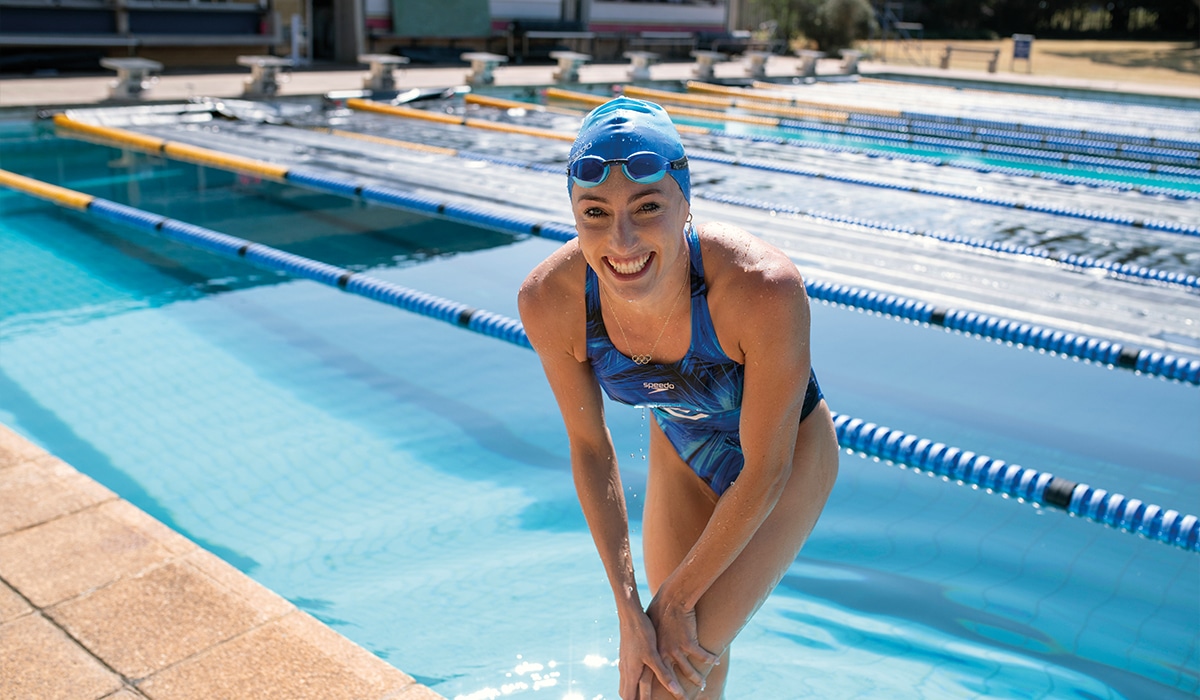
She continued to win medals, but her personal best times remained out of reach. “I went through a really tough time after Tokyo in terms of my swimming. I haven’t seen good times for the past three years, but I showed myself that I really have a ‘don’t give up’ attitude and that I hold onto hope,” she says.
To her, racing is not about medals – it’s about challenging herself as well as bettering her own best times. “It was very challenging to keep up my motivation between Olympics, I’m not going to lie. Not being able to swim on the times, or even close to my times at Tokyo, was really tough. Swimming is a lot of hours: 50 weeks of the year, twice a day, four hours every day in the pool. Spending that time and stepping up my game every season, but not improving and seeing the results, was really challenging,” she explains. But looking back, she sees only growth – Tatjana believes she had to go through tough times to get where she is today. “I surprised myself that I could persevere and push through that,” she reflects. “The personal and emotional growth has been a highlight for me because it makes me a better person and better version of myself… I see everything aligning and I’m in a much better space.”
“During that time, I also married the love of my life [athlete representative Joel Smith], so everything just really fell into place and I couldn’t be happier,” she grins. “I go back and remind myself why I started – I do it to use my talents to glorify God, which means giving my best every day even if the results don’t come. I pitch every day because that story will inspire someone else to not give up on themselves.”
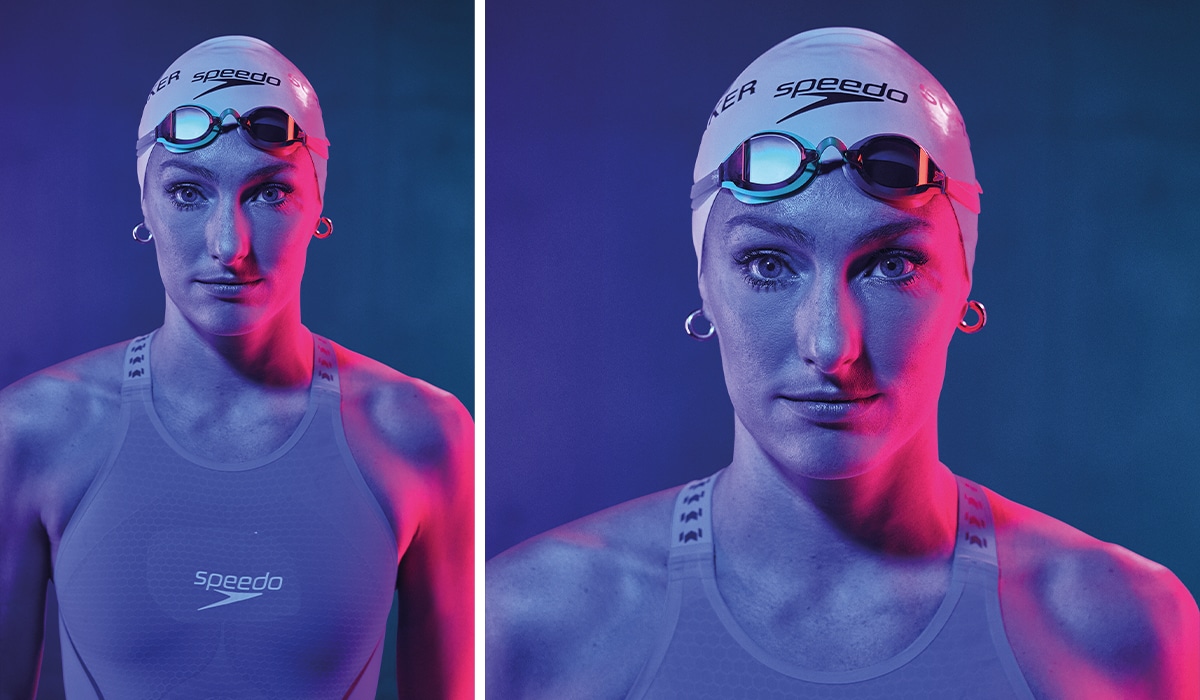
Essential to being able to pitch up every day is having a balanced life. “You can only train so hard and eat so many healthy things, but it’s really who you surround yourself with that makes or breaks it,” she believes. After Tokyo, her parents and sister emigrated, and it was a major adjustment for her. Meeting her husband, being surrounded by family and having supportive friends is what refuels her – so much so that it is more important than pitching up to training, she believes. “Everyone works equally hard, but it’s the mental side that either makes you the best or not… Eating good food, prioritising mental health and refueling yourself with people you love is what energises you to go swim again.”
*At the Paris 2024 Olympics earlier this year Tatjana grabbed the gold medal for the 100m breaststroke event and silver in the 200-metre breaststroke final.
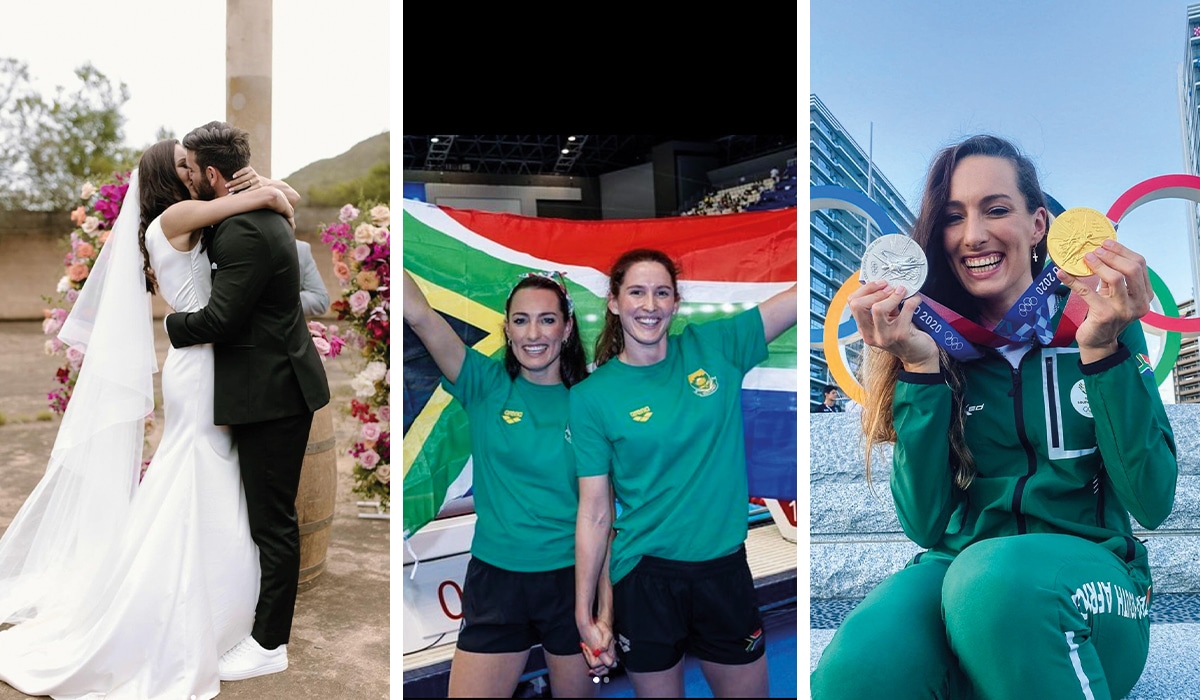
Tatjana in a flash
Favourite place to swim for fun?
Nowhere – I don’t think any swimmer likes swimming for fun. Maybe on the beach sometimes, because it’s different from the pool. If you invite swimmers to a pool party, I doubt you’d ever see them in the pool!
Pre-race ritual?
I listen to praise and worship music just to remind myself why I am there and He who gives me strength. I try to get excited and not to think of the race too much. I remind myself that the work has been done and I can just enjoy.
Role model?
I don’t have one, only because I think there are so many athletes who inspire me. It’s not just those who achieve, but the swimmers who arrive at the pool that give their best yet don’t make the teams, or don’t get personal bests for five years but still pitch up every day because of perseverance and a true love for the sport.
Quote to live by?
I always have Bible verses that I carry with me every race to remind me why I’m doing this.
Bucket-list item?
There are so many! It’s as simple as going for a hike, going away for a long weekend or not having to swim on my birthday. With swimming, you’re on a strict schedule and you have to limit activities because you risk injury.
Words by: Christi Nortier
Photograph: Tyrone Bradley Photography
Also read: 5 legendary SA women who competed in the Olympics



